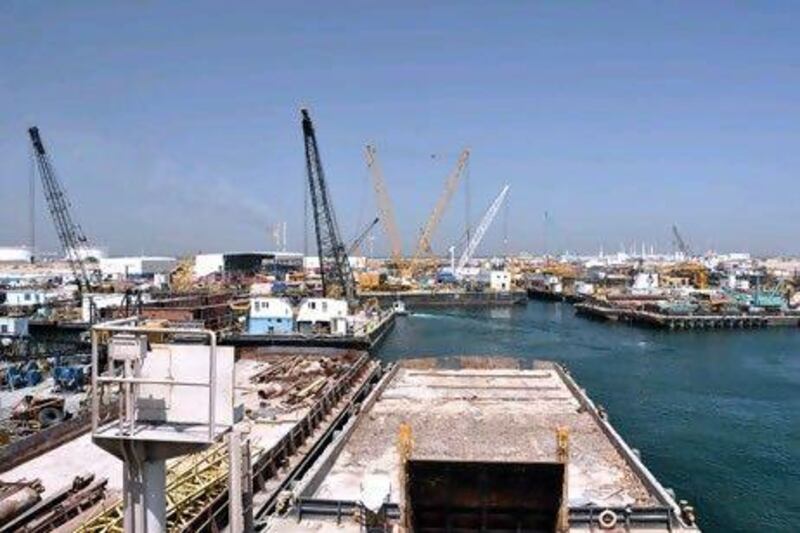Ras al Khaimah has opened a multimillion-dollar industrial free zone and port as the northern emirate pursues an economic diversification campaign.
The Dh520 million (US$141.5m) RAK Maritime City, spread over an 800-hectare site, is targeting major international companies involved in medium to heavy industries.
The strategy could bring it into competition for clients against Jebel Ali Free Zone in Dubai and the Khalifa Industrial Zone of Abu Dhabi.
Officials played down Maritime City's potential competition to similar projects in Dubai and Abu Dhabi.
"We don't see ourselves as competition," said Naser Bustami, a director at Saqr Port Authority. "We see ourselves as complementary."
Officials said the 5km of quay wall for dedicated berths and private jetties was unique, and highlighted RAK's location as the first port of call into the Gulf.
Maritime City will target customers in the steel, petrochemicals and fabrication industries, they added.
"Our objective is to be able to attract all industries connected with the maritime world and to offer them a long-term partnership," said Capt Colin Crookshank, the general manager of RAK Maritime City.
In total Maritime City seeks to attract between 40 and 50 major tenants with plots starting from 25,000 square metres and lease agreements ranging from 25 to 99 years. It is estimated the free zone will create 5,000 jobs for Ras al Khaimah.
A number of anchor tenants have already set up operations at the zone, including Knauf, a German gypsum board maker, the barge and tug operations unit of Shin Yang, a Malaysian conglomerate, and Archirodon, a Greek construction company that moved its facilities from Ajman.
Free zone officials are also in discussions with several other major companies, including a US railway firm that is considering building a rolling stock fabrication plant at the free zone.
That project and many others would be set to benefit from the Etihad Rail network expected to be built throughout the country this decade, with a planned stop at Maritime City to carry raw materials into the area and exports of finished goods.
Expansion plans at the free zone could include an 8ha land reclamation project to extend the zone into the Gulf, possibly for an oil terminal or other oil and gas-related facilities.
As with other free zones, the maritime city will seek to attract firms as a "one-stop shop" and with its "ease of doing business".
Enticements also include 100 per cent foreign ownership and repatriation of funds, no customs duties or corporate taxes, and an offer by the RAK Government to co-invest with tenants on certain projects.
The zone will also be able to issue trade licences, work permits and residency visas.
RAK Maritime City is the second free zone in Ras al Khaimah, an emirate with scant oil and gas holdings. As a result, the emirate has long relied on other resources such as quarries to build up an aggregate trading business and cement factories.
Although power cuts have been a constant concern for manufacturers in the emirate, free zone officials said recent issues had been resolved through new power services and a recent commitment of support from the federal Government.
In 2009, Ras al Khaimah consolidated its five ports under a single authority to avoid competition and align under an overarching strategy.
Other facilities include Saqr Port, the region's largest bulk handling terminal, Al Jazeera Port, focusing on dry docks and ship repair, Al Jeer Port, which houses livestock handling facilities and yachts, and RAK Khor Port, which provides warehousing and where plans are being developed for cruise terminals.






